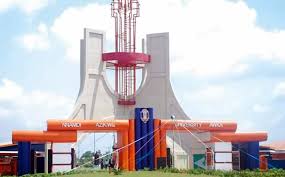Lecturers at the College of Medicine, Nnamdi Azikiwe University (NAU) in Awka have initiated an indefinite strike due to concerns over the recent vice-chancellorship vacancy announcement. The strike, involving clinical lecturers from various medical faculties, follows claims that the criteria outlined in the job advertisement unfairly exclude many qualified candidates.

The strike was announced via a statement jointly signed by Victor Modekwe, chairperson, and Sunday Oriji, secretary of the NAU chapter of the Medical and Dental Consultants Association of Nigeria. They expressed their disappointment over the exclusion of clinically trained lecturers from competing for the vice-chancellor position, which they believe is unjust.
The official advertisement for the vice-chancellor role specified that candidates must hold a first degree, a master’s degree, and a PhD. However, the clinical lecturers argue that their academic qualifications and professional development do not neatly fit into these traditional categories. Many of these lecturers possess advanced fellowships and specializations, which they believe are equivalent to the postgraduate degrees typically required.
The lecturers’ strike entails a complete withdrawal of all academic services, effectively shutting down operations within the faculties of medicine, basic clinical sciences, and basic medical sciences at the university. In their statement, the association highlighted their previous request for the withdrawal of what they termed an “obnoxious” vacancy advert, insisting it was essential for maintaining industrial harmony among faculty members.
“The congress resolved to proceed on an indefinite withdrawal of services by all clinical lecturers of NAU until this advert is retracted,” the statement underscored, emphasizing their commitment to advocating for fair representation in the university’s leadership selection process.
The ongoing strike has significant implications for the educational environment at NAU, especially in medical training and supervision of students. Many clinical lecturers play a crucial role in educating future healthcare practitioners, and their absence can create gaps in both teaching and patient care services linked to the university’s affiliated teaching hospitals.
As the dispute continues, the lecturers have expressed hope that management will reconsider their position and engage in dialogue to address their concerns. They contend that fair representation among potential vice-chancellors is crucial for the university’s direction and development, particularly in the dynamic field of medical education.
The strike follows a period of tension regarding faculty governance and academic freedom in Nigeria’s higher education institutions. The situation reflects broader challenges faced by universities, where faculty members often grapple with issues of inclusion and equity in administrative processes.
The indefinite strike by NAU medical lecturers spotlights the pressing need for inclusive governance in academic institutions. As they demand a retraction of the vice-chancellorship criteria that exclude many qualified lecturers, the outcome will likely influence future policies and practices concerning faculty participation in university leadership decisions. The situation remains fluid as both sides seek a resolution that addresses the lecturers’ valid concerns.



